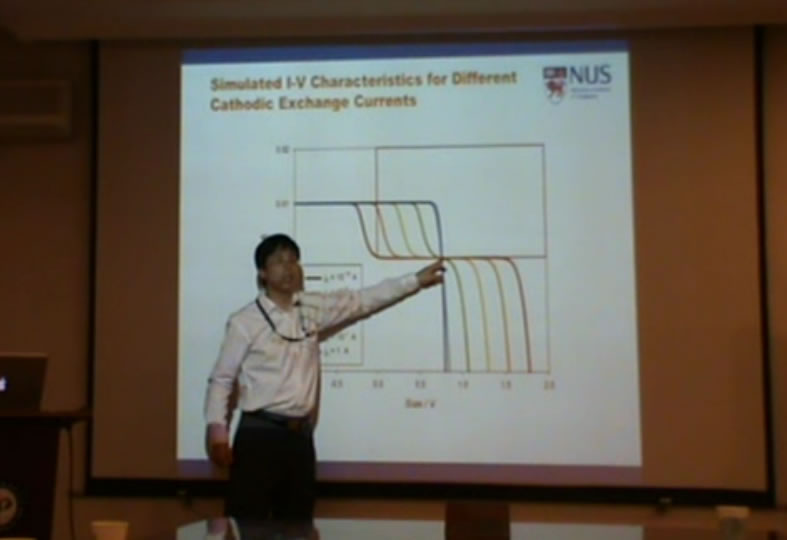光电化学系列讲座(二十四) 2010-6-2
中国可再生能源学会、光化学委员会光电化学系列讲座(二十四):

报告人:Dr. Qing Wang (王庆)
Department of Materials Science and Engineering, Faculty of Engineering, Nanocore, National University of Singapore
Dr. Qing Wang is Assistant Professor in National University of Singapore since 2008. He received his Ph D degree in Condensed Matter Physics from Institute of Physics, Chinese Academy of Sciences in 2002 with the supervisor of Prof Liquan Chen. He was a postdoctoral research assistant at Swiss Federal Institute of Technology (EPFL), Lausanne, with Prof. Michael Grätzel in 2002.12-2006.8, and postdoctoral research associate in National Renewable Energy Laboratory (NREL), USA, with Dr. Arthur J. Frank in 2006.9-2008.2. Now his research interest focuses on the following fields: mesoscopic charge transport in advanced energy conversion and storage systems; novel nanostructured materials and systems for advanced energy conversion and storage.
报告题目:Charge Transport in Some Mesoscopic Energy Conversion Systems
内容提要:
Charge transport processes are of paramount importance to the applications of advanced functional materials. While these processes are fairly well understood at the atomistic/molecular level and in bulk materials. charge transport in mesoscopic systems have only recently been recognized to be substantially different from their microscopic and macroscopic counterparts. In the last two decades, although there has been rapid progress on the preparation of nanoscale materials and the assembly of the nanoscale materials into advanced nanostructures, there are very few examples of technological advances based on such nanostructures. The main reason behind this apparent lack of success is the inadequate understanding of charge transport processes at the mesoscopic scale where devices operate. These nanoscale charge transport processes, however, are important to both the frontier of fundamental science and applications to efficient energy conversion and storage devices, such as photovoltaics, photolysis, fuel cells, batteries, electro-luminescent and electrochromic displays, etc. Understanding the charge transport processes at this length scale is important for debottlenecking the device performance and for realizing the full potential of the nanostructure. Here I will share some of the fundamental understandings of charge transport processes in mesoscopic energy conversion and storage systems, including sensitized nanostructured solar cells and lithium ion batteries, and discuss their important hints to the improvement of device performance.
